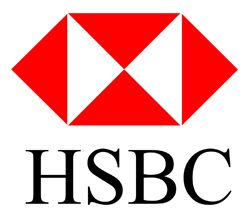Top Class Actions’s website and social media posts use affiliate links. If you make a purchase using such links, we may receive a commission, but it will not result in any additional charges to you. Please review our Affiliate Link Disclosure for more information.

Plaintiffs Stephanie Scoggins, Elenda Givan, Otis Hawkins and Jordan Saddler claim that HSBC Bank is part of a conspiracy to allow their stolen money to be used in a money laundering scheme “to fund the Sinoloa Drug Cartel” in violation of the Racketeer Influenced and Corrupt Organizations Act of 1970 (RICO).
The plaintiffs claim that they had money stolen from them “by members of Los Angeles street gangs that was then deposited at HSBC for the purpose of laundering the money to fund the distribution enterprise of the Sinoloa Cartel.”
“Money laundering is an act to hide and disguise the source of money in order for the money to be treated as lawfully obtained money by a criminal enterprise,” the plaintiffs explain in their HSBC Bank class action lawsuit.
Each plaintiffs claims that they had money stolen from them from $57 to $1,500 and an iPhone from Saddler, which was then “received by HSBC and laundered in accounts associated with the Sinoloa Cartel” from 2003 through 2012. The stolen money was deposited into bank accounts at HSBC, which could be accessed by the cartel.
“The specific accounts at HSBC that were used to launder money for the Sinoloa Cartel number over 3,000,” the class action lawsuit says. “These specific accounts have been identified by the United States Department of Justice in its prosecution of HSBC that resulted in the [Deferred Prosecution Agreement] DPA, by the United States Senate Committee on Homeland Security and Governmental Affairs in a hearing held on July 17, 2012, and in various other criminal cases where money involved in the Sinoloa Cartel drug distribution enterprise was subjected to forfeiture proceedings.”
The plaintiffs in the HSBC Bank money laundering class action lawsuit are looking to represent a class of all “persons whose property, including money, was wrongfully taken by a Los Angeles street gang that is associated with the Sinoloa Cartel and whose property/money was deposited into accounts as HSBC associated with the Sinoloa Cartel.”
According to the class action lawsuit, the class may be in the thousands, which the plaintiffs say is easily identifiable from Los Angeles Superior Court records or records from the Los Angeles County District Attorney and the City Attorney of Los Angeles and other law enforcement departments “that have prosecuted Los Angeles Street gangs for theft crimes associated with the distribution of drugs.”
The money laundering class action lawsuit brings four charges against HSBC Bank of violations of RICO, saying that the bank “engaged in conduct that constitutes a RICO pattern of racketeering activity” such as “hiring additional compliance officers and law firms that would create and cooperate with the policies that allowed for the money laundering activities.”
According to the class action lawsuit, HSBC Bank was supposed to create a compliance program that prevented money laundering, which included monitoring, employee training and establishing an independent audit program.
On the contrary HSBC Bank “ignored the money laundering risks associated with doing business with certain Mexican customers and failed to implement [an anti-money laundering program] that was adequate to monitor suspicious transactions from Mexico,” the statement of facts contained in the DPA stated.
The DPA said that HSBC and HSBC Mexico helped illicit drug profits to be illegally brought from the United States into Mexico and ultimately to Colombia to fund the drug cartels because of HSBC Bank’s inability to prevent money laundering, the statement of facts alleged.
HSBC said in 2012 that it set aside $2 billion to handle the legal fallout from the alleged money laundering conspiracy.
The plaintiffs are asking for trebled damages.
The plaintiffs are represented by Dermot D. Givens.
The HSBC Bank Class Action Lawsuit is Scoggins et al. v. HSBC Bank USA, Case No. 2:15-cv-1328, in the U.S. District Court for the Central District of California.
ATTORNEY ADVERTISING
Top Class Actions is a Proud Member of the American Bar Association
LEGAL INFORMATION IS NOT LEGAL ADVICE
Top Class Actions Legal Statement
©2008 – 2024 Top Class Actions® LLC
Various Trademarks held by their respective owners
This website is not intended for viewing or usage by European Union citizens.














